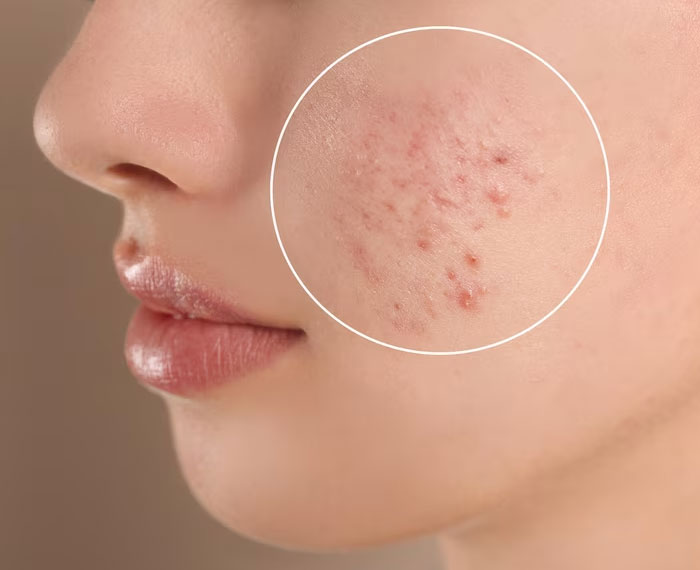
Dermatology
Skin Diseases
The Department of Skin and Venereal Diseases is a branch of science that provides diagnosis and treatment services related to skin diseases. In the Department of Skin Diseases, doctors specializing in the diagnosis and treatment of various problems related to skin health provide services. Skin diseases can occur due to disorders caused by changes in the skin.
The most common skin diseases include psoriasis, eczema, acne, dermatitis and lichen planus. These diseases usually present with symptoms such as redness, itching, rashes and scaling of the skin.
The diagnostic process for skin diseases usually involves a physical examination, blood tests or a skin biopsy. Dermatologists use their clinical experience and expertise to make the most accurate diagnosis based on the patient’s symptoms and skin manifestations.
Which diseases does the Department of Dermatology treat?
In the Department of Skin Diseases; diagnosis and treatment of many diseases and problems that occur on the skin are performed. Among the most common skin diseases we hear about; nail fungus, acne, rosacea, dandruff, hives, eczema and psoriasis.
Diseases transmitted through sexual contact are also diagnosed and treated in the Skin Diseases department. These diseases can manifest themselves with symptoms such as infections, skin rashes or warts. Diseases transmitted through sexual contact include genital warts (HPV), herpes, syphilis and HIV/AIDS. Diagnosis and treatment of these diseases is usually performed by a dermatologist or infectious disease specialist.
Treatment of sexually transmitted diseases is usually with medicines such as antiviral drugs, antibiotics or antifungals. In addition, sex education and contraception are also important to prevent the spread of diseases.
What are the most common skin diseases?
The skin is an organ that covers the outer layer of the body and acts as a protective barrier against environmental influences. However, skin damage can also occur for various reasons. Here are some of the most common skin conditions:
- Acne (Pimple)
- Eczema (Dermatitis)
- Psoriasis
- Dermatophytes (Fungal Infections)
- Rosacea (Rose Disease)
- Hives
- Behcet’s Disease
What are Rare Skin Diseases?
The skin diseases section includes the diagnosis and treatment of rare conditions as well as common conditions to prevent the progression of the disease. These diseases are
Vitiligo
vitiligo is a disease in which white spots form on the skin due to decreased melanin production.
Sun Allergy
A condition in which redness, itching and blisters appear on the skin when exposed to sunlight.
Aphthae
Aphthae is a lesion where sores form in the mouth and can occur for a variety of reasons.
Capillary Problems
Capillary problems occur when small vessels in the skin dilate or burst and are often associated with aesthetic concerns.
Skin Cancer
Skin cancer is a condition in which uncontrolled cell growth occurs in the skin and abnormal-looking lesions form on the skin. Early diagnosis and proper treatment of these diseases can help prevent serious conditions in the future. For this reason, it is important to seek help from a dermatologist when you notice any interesting symptoms on the skin or long-term discomfort that does not go away. With early diagnosis and the right treatment methods, many diseases can be controlled or completely resolved.
What are Stress-Related Skin Diseases?
Stress has a serious impact on our lives and is among the main factors of many diseases. All stress-related diseases are related to the effects of stress on the body and many of these diseases can directly affect skin health. The most common skin diseases that occur due to stress are hives, eczema, psoriasis, acne (acne) and aphthae, which usually develop with severe itching. Common symptoms of these types of stress-related diseases can be itching or a body rash
What is Inflammatory Skin Disease?
Many inflammatory skin diseases can be of autoimmune origin, while others can be caused by external influences. Common symptoms of these diseases are redness, itching, swelling and rashes.
Genetic predisposition, dysfunction of the immune system, stress or environmental factors can also lead to inflammatory skin diseases. Inflammatory diseases are diagnosed with the evaluation of examination and tests, and treatment is started as soon as possible to control the inflammation and prevent recurrence in the body.
What are the Applications in the Department of Skin Diseases?
The dermatology department also offers applied services for skin health. These services include applications such as medical hand care, medical foot care and medical skin care performed in a sterile environment. These treatments play an important role in maintaining and improving skin health. In addition, cosmetic procedures such as laser procedures and hair transplantation are also performed in the dermatology department.
In addition to these, the dermatology department also offers services that require special care, such as diabetic foot treatment. Diabetic foot is a common condition in diabetic patients and can lead to serious consequences. Therefore, diabetic foot treatment is an important need. This treatment includes the healing and prevention of foot wounds and the treatment of infectious diseases.
Laser procedures, also offered in the department, are an effective method for treating various skin problems such as skin blemishes, capillaries and hair follicles. These procedures are used to improve the appearance of the skin and address aesthetic concerns.
The applied services performed by dermatologists in the dermatology department are performed safely and in a sterile environment to protect and improve the skin health of patients and to address their aesthetic concerns.



